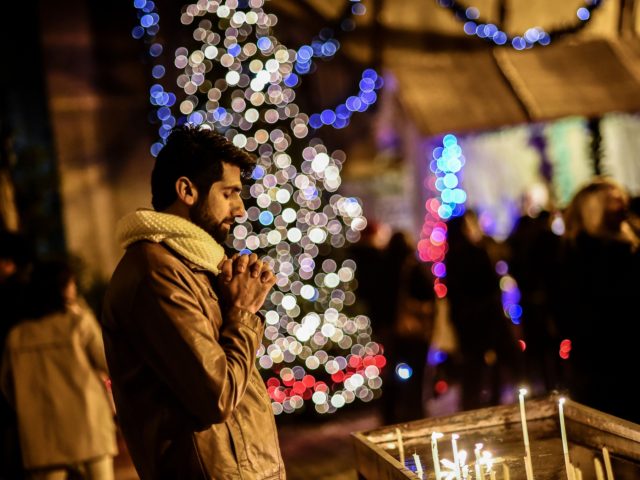Two human rights watchdog groups have published an extensive report examining Christian persecution in Turkey and showing that Christians are still treated as second-class citizens in the mostly Muslim nation.
On December 7, International Christian Concern (ICC) and Middle East Concern (MEC) released a 40-page joint report titled Turkey: Challenged Facing Christians 2016-2020, chronicling the situation of Christians in Turkey over the four-year period.
During this time, the Turkish state has been “leveraging Christians for political purposes,” leaving them “vulnerable to manipulation and exploitation for political gain,” the study found.
Religious liberty for Christians is regularly violated in manifold ways in Turkey, including through the abuse and usurpation of “Christian properties, institutions, organizational abilities, leadership trainings, and internal governance,” the report declared.
In present-day Turkey, the legal status for Christians and their institutions is suppressed, Christians are excluded from full acceptance and participation in Turkish society and are systematically intimidated to prevent their full cultural and ethnic expression, the report states.
This past June, a number of Christian pastors warned of growing repression of Christianity under the rule of Turkish President Recep Tayyip Erdoğan.
The president of the Istanbul Protestant Church Foundation (IPKV), Timur Topuz, said that Christian pastors in Turkey are facing growing hostility, especially since the release of American pastor Andrew Brunson, who had been detained in Turkey for nearly two years on charges of involvement in the failed July 2016 coup against President Erdoğan.
Pastor Brunson was released in October 2018, but only after the Trump administration put significant pressure on the Turkish government, including the imposition of tariffs on Turkish steel and aluminum imports.
“Since the Brunson incident, all Protestant pastors are treated with suspicion,” Mr. Topuz observed.
Turkish President Recep Tayyip Erdoğan has warned the world Jerusalem “belongs” to Turkey, harking back to the Ottoman Empire’s control over the city for hundreds of years up until it was ejected in 1917. https://t.co/5MKFFYIVZo
— Breitbart News (@BreitbartNews) October 4, 2020
A pattern is emerging of pastors and their families in Turkey who are either having their residence permits revoked or not renewed, Topuz noted, adding that “thirty five pastors of the Turkish-Protestant community are experiencing problems of this kind.”
As Breitbart News reported, one religious scholar has asserted that President Erdoğan has been using the nation’s Christians as a “welcome scapegoat” to distract from his own political blunders in Syria and Libya.
This week’s report confirms that the repression of religious freedom for religious minorities has become more acute following the 2016 coup attempt against President Recep Tayyip Erdoğan, “who responded by accelerating the implementation of an Islamic-nationalist agenda.”
Asa result, the Turkish government is exploiting “the vulnerabilities of Christians” and using the abuse of Christians “as an international bargaining chip” and to gain “domestic political leverage,” it states.
“The institutionalized use of religious freedom as a political bargaining chip should prompt caution amongst human rights advocates,” the report cautions.
Rather than providing an exhaustive narrative of all instances of such abuse, the report employs a number of case studies that exemplify the different types of persecution and harassment to which Christians are subject in Turkey.
At the same time, the report’s authors insist that they are not attempting to shame Turkey but to honestly express grievances that can be addressed with good will and dialogue.
“Through this report, it is our earnest desire to encourage an open dialogue between the international community and Turkey, aimed at restoring trust and relationship,” they state. “We hope a transparent dialogue will contribute to policies which recognize, uphold, protect, and promote the rights of Christians living in Turkey.”
Hungary’s Orban: Protect Middle East Christians or Anti-Christian Persecution Will Come to Europe
https://t.co/LzAQKUa1GC— Breitbart London (@BreitbartLondon) October 12, 2017
“It is through these small yet important steps of honoring the other that true reforms can ultimately be brought about,” they state.
Turkey’s Christian population numbers some 160,000 (including different Orthodox, Catholic, and Protestant communities), less than 0.2 percent of the total population.
Converts from Islam to Christianity who number in the thousands, are permitted under Turkish secular law but “may be targeted by extremists as ‘apostates’ from Islam and proselytizers of the Christian faith,” the report notes.

COMMENTS
Please let us know if you're having issues with commenting.